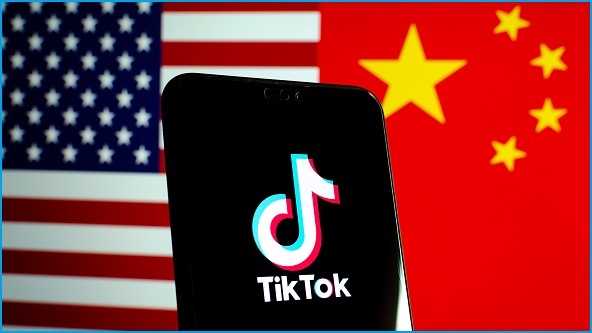US President Donald Trump has further escalated his technology trade war with China by signing a pair of executive orders targeting the owners of social media companies TikTok and WeChat on Friday.
Under the executive orders, anyone subject to US law will be prohibited from conducting transactions with TikTok owner ByteDance Ltd and WeChat owner Tencent Holdings.
Trump’s executive orders cited national security concerns, saying both TikTok and WeChat capture “vast swats of information” from their users.
“This data collection threatens to allow the Chinese Communist Party access to Americans’ personal and proprietary information,” Trump said.
Of TikTok, the US President warned it could “potentially allow China to track the locations of Federal employees and contractors, build dossiers of personal information for blackmail, and conduct corporate espionage”.
The US notoriously collects vast swaths of data on citizens and foreign nationals as part of the National Security Agency’s (NSA) PRISM surveillance program.
And in 2018, US fitness app Strava released heatmaps of the paths taken by users as they ran or cycled – inadvertently revealing the location of US military bases.
“[TikTok] may also be used for disinformation campaigns that benefit the Chinese Communist Party, such as when TikTok videos spread debunked conspiracy theories about the origins of the 2019 Novel Coronavirus,” Trump said.
Misinformation about COVID-19 have been running rampant on US social media platforms like Facebook and Twitter.
The platforms have been somewhat proactive in mitigating the spread of misinformation.
This week they both restricted Donald Trump and his social media campaigns for posts that Facebook said contained “harmful Covid misinformation”.
Of WeChat, Trump said the ubiquitous social media platform gave “the Chinese Communist Party a mechanism for keeping tabs on Chinese citizens who may be enjoying the benefits of a free society for the first time in their lives”.
Bizarrely, the President incorrectly cited Australia as one of two countries which have begun “restricting or banning the use of WeChat”.
India banned WeChat and TikTok along with a suite of other Chinese apps last month, but Australia has done no such thing.
Microsoft has said it is interested in buying TikTok and was given a 45-day deadline to get the deal done earlier this week.
Facebook-owned Instagram released its TikTok clone, Reels, on Thursday.
Shockwaves in the gaming industry
Tencent was the world’s eight largest company by market capitalisation before Friday’s ban saw it quickly lose a whopping $64 billion – dragging the Chinese Yuan down with it – according to Bloomberg.
Along with WeChat, Tencent owns – or has a large stake in – a range of highly popular video game developers including Riot Games (the makers of League of Legends and new shooter Valorant) as well as a 40 per cent share in the developer of cultural phenomenon, Fortnite.
With the executive order saying bans would apply to transactions “with Tencent Holdings Ltd … or any subsidiary of that entity”, it initially appeared to apply to the likes of Fortnite.
Video game companies owned by Tencent will NOT be affected by this executive order!
— Sam Dean 🦅 (@SamAugustDean) August 7, 2020
White House official confirmed to the LA Times that the EO only blocks transactions related to WeChat
So Riot Games (League of Legends), Epic Games (Fortnite), et al are safe
(pending updates)
After seeking clarification from the White House, the LA Times reported the Tencent ban would only affect transactions with WeChat.
But if the new executive orders are anything like Trump’s ban on Huawei, the effects could be wide-reaching and difficult to control.
The Huawei ban reportedly caused confusion among producers and suppliers, but the likes of chip-manufacturer Intel still managed to skirt the restrictions.










